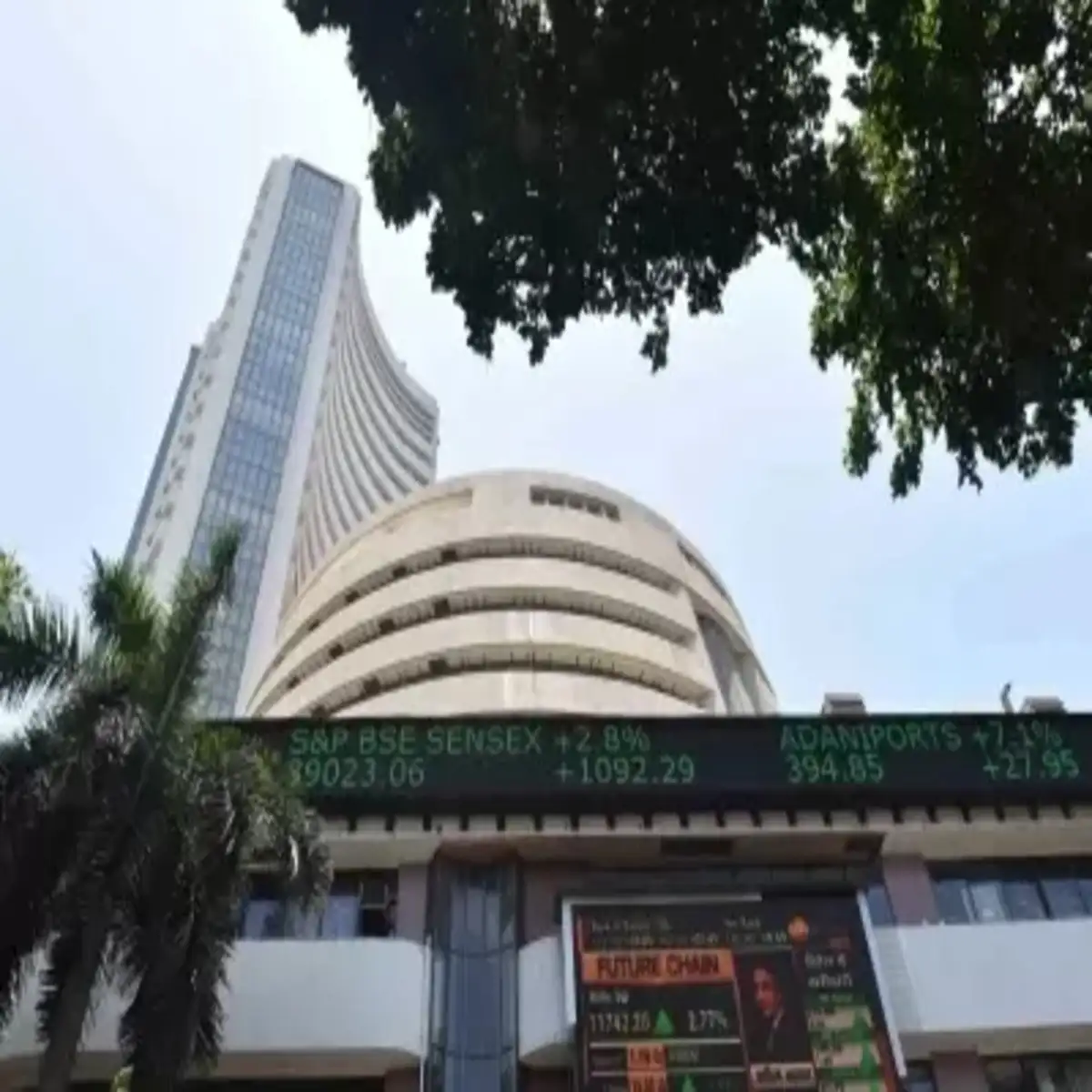Posted on April 4, 2025, by Niftynews
On Thursday, April 4, Reliance share price experienced a sharp drop of 3.16%, reaching ₹1,209.30 by 10:23 am IST. This decline, equivalent to ₹39.40, was primarily driven by a broad-based market selloff and global economic concerns. The Reliance Industries Ltd. (RIL) stock opened at ₹1,241.10 on the National Stock Exchange (NSE), registering a gap-down from the previous session’s closing price of ₹1,248.70. Although the stock briefly hit a high of ₹1,245.45 during the early session, it soon retreated to an intraday low of ₹1,208.00.
Market Opening & Price Movement of Reliance Share Price
The Reliance share price drop mirrors a general weakness in Indian equity markets. The Nifty 50 index also saw a significant fall, dropping more than 275 points in the early trade. This decline was sparked by rising concerns over the possibility of a global trade war, following the announcement of aggressive tariff policies by US President Donald Trump.
As of the latest market update, Reliance shares were down by ₹39.40 or 3.16%, trading at ₹1,209.30, reflecting the broader sentiment in the market. This decline in Reliance share price significantly impacted the Nifty 50 and Sensex, where the stock holds a prominent position due to its heavy weight in both indices.
Key Metrics for Reliance Industries
- Current Price (10:23 am): ₹1,209.30
- Day’s Change: -₹39.40 (-3.16%)
- Previous Close: ₹1,248.70
- Market Cap: ₹16.37 Lakh Crore
- P/E Ratio: 23.66
- Dividend Yield: 0.41%
- 52-Week High: ₹1,608.80
- 52-Week Low: ₹1,156.00
These metrics reflect the Reliance share price as of April 4, showing a substantial loss in a broader market context. The P/E ratio of 23.66 indicates a relatively stable valuation, but market uncertainty could cause fluctuations in the short term.
Global Cues Impacting Reliance Share Price
Global economic concerns are central to the Reliance share price drop. The steep decline in US markets on April 3—S&P 500 falling 4.9% and Nasdaq 100 plunging 5.5%—has triggered ripple effects in global markets, including India. The Indian market, specifically stocks like Reliance, is feeling the pressure from US President Donald Trump’s recent tariff policies that could destabilize global supply chains.
Asian markets followed the negative lead, and Indian investors responded similarly, leading to Reliance share price underperforming in early trade. The Reliance share price decline today reflects the broader market sentiment, largely driven by global uncertainties.
Sectoral and Investor Insights
Reliance Industries holds substantial weight in the Indian market, especially in the Nifty 50 and Sensex indices. As one of the largest conglomerates in India, its stock performance heavily influences the broader market direction. Despite the recent downturn in Reliance share price, the company continues to have strong fundamentals, with diverse business operations spanning across sectors such as telecom (Jio), retail (Reliance Retail), and energy.
While Reliance faces short-term volatility, the company is likely to continue benefiting from its diversified portfolio and solid business model. However, as seen in the current market movement, it is not immune to broader global trade war concerns and macroeconomic uncertainty.
Analyst Outlook on Reliance Share Price
Analysts remain cautiously optimistic about the long-term outlook for Reliance share price, despite the recent correction. “The short-term correction in Reliance share price is likely a result of global market shocks, but the company’s fundamentals remain strong,” says Sumeet Mehta, an independent equity analyst.
Reliance’s diversified business model, strong cash flow from Jio and Reliance Retail, and ongoing investments in energy and petrochemicals provide a solid foundation for growth in the future. Market experts suggest that the current downturn may be a temporary phase and that Reliance share price could rebound once global tensions ease and investor sentiment stabilizes.
Technical View on Reliance Share Price
From a technical analysis standpoint, the Reliance share price is testing key short-term support levels near ₹1,200. If the stock manages to hold this level, a rebound could be expected in the near term. However, should the price fall below this support, there could be further downside risk, with targets in the ₹1,170–₹1,180 range.
In the event of a recovery, Reliance share price could look to retest previous resistance levels near ₹1,250 and beyond. Investors should keep an eye on global economic developments and market conditions, as these will be key factors in determining Reliance’s stock performance moving forward.
Conclusion: Reliance Share Price Faces Pressure Amid Global Market Concerns
In conclusion, Reliance share price saw a sharp drop of 3.16% on April 4, primarily due to global economic concerns and the possibility of a trade war triggered by US tariffs. While this decline is significant in the short term, Reliance Industries remains a fundamentally strong company with a diversified portfolio. Investors should closely monitor the global situation and broader market trends, as these factors will continue to affect Reliance’s stock price in the coming days.











